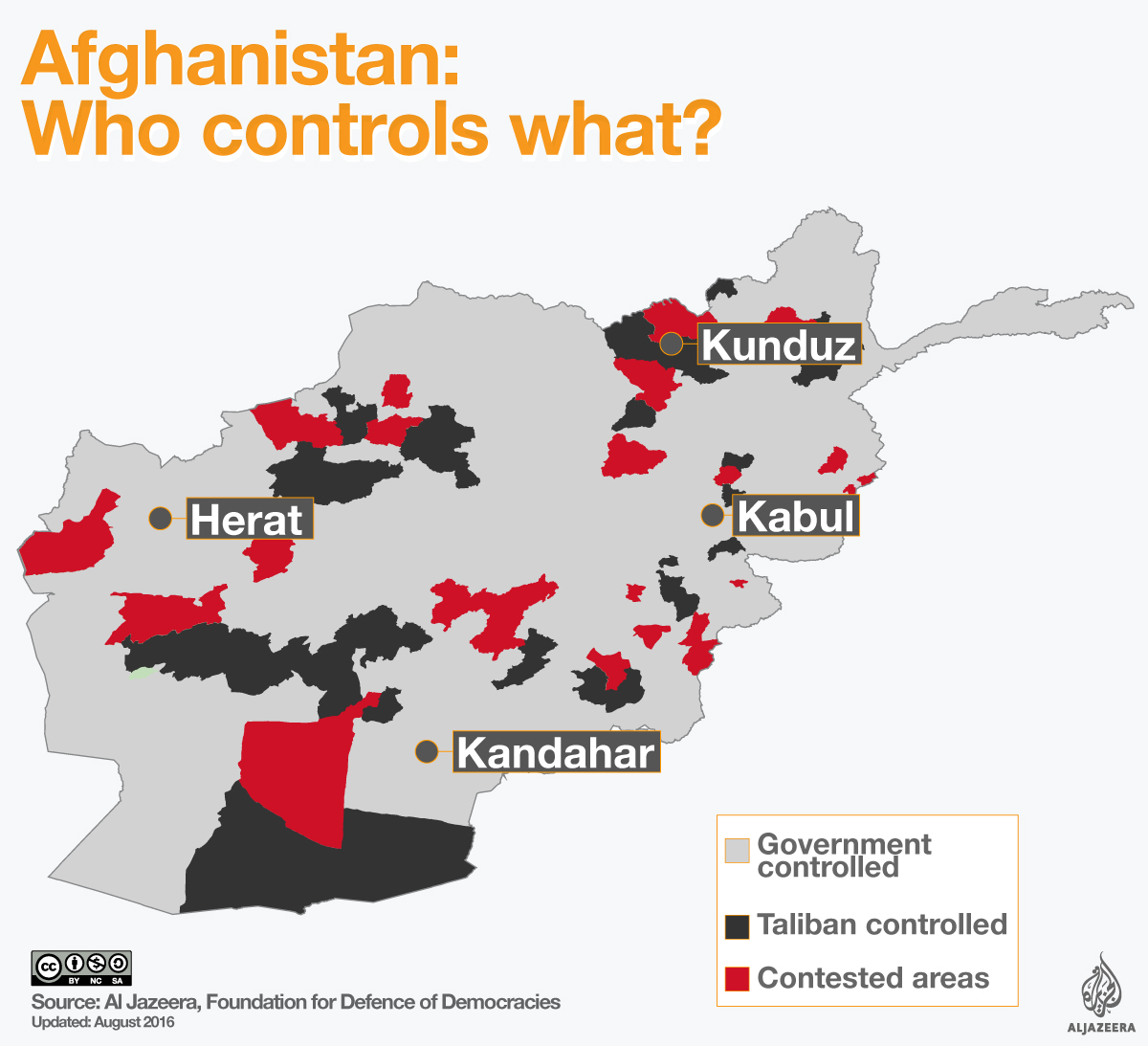Taliban seizes Khanabad in Afghanistan’s Kunduz
Just days after fall of key district in Baghlan, Khanabad, which links Kunduz to Takhar, slips from government control.

After days of heavy fighting, the Taliban has taken control of another of the five districts in the northern Afghan province of Kunduz, according to local authorities.
The fighters seized the district of Khanabad, which connects Kunduz to Takhar and other northern provinces, on Saturday morning, with heavy clashes reported in several other districts.
Keep reading
list of 4 itemsPalestinian Prisoner’s Day: How many are still in Israeli detention?
‘Mama we’re dying’: Only able to hear her kids in Gaza in their final days
Europe pledges to boost aid to Sudan on unwelcome war anniversary
“The Taliban attacked the district from different positions and we resisted for hours but we received no support. The district fell to the Taliban,” said Hayatullah Amiri, the Khanabad chief.
|
|
The Taliban has intensified its attacks in Kunduz and also carried out raids in other key districts in the province in the past weeks.
“The reports that I have by talking to people in Kunduz is that the district fell into the hands of the Taliban without any combat or conflict,” Habib Wardak, who campaigns for good governance, told Al Jazeera from Kabul.
“It looks like the capture of Khanabad will have severe repercussions on the socio-economic, political and security situation not just in Kunduz but the entire northern part of the country.”
The fall of Khanabad comes just five days after the Taliban captured a district in neighbouring Baghlan province, seizing a number of government forces’ vehicles and ammunition.
The fighters launched a coordinated attack on Dahana-e-Ghori on August 12, leading to heavy clashes in the area until the fighters took control of the district on August 15.
Fighting has escalated in Afghanistan as the Taliban campaign spreads from its traditional strongholds in the south and east of the country to once peaceful regions in the north.
Political crisis
The security problems facing Afghanistan are being compounded by a growing political crisis within the Kabul government.
Abdullah Abdullah, Afghanistan’s chief executive, recently criticised President Ashraf Ghani for failing to work collaboratively and deemed him undeserving to serve the government.
Despite air support from US and Afghan warplanes, government troops are struggling against the Taliban, with senior government officials saying the fighters are becoming better trained and equipped.
READ MORE: Afghanistan political crisis: Entitlement vs democracy
“It seems like the morale of the Afghan national security forces is quite low in Kunduz. There is a lot of political disagreement among our political leaders in Kabul, and this is having a severe impact on our forces on the ground,” Wardak, the activist, told Al Jazeera.
“It looks like the government is yet to get its act together in the fight against the Taliban. The only thing that offers hope to the Afghan security forces is the commitment of the international community, with a lot of aid and support flowing in from the US military.”
Taliban strongholds
The provincial capital, Kunduz city, fell to the Taliban for the first time in September last year, in one of the biggest victories for the fighters since they were toppled from power by US and coalition forces in late 2001.
Fighting has also escalated in other Afghanistan provinces.
Fierce Taliban assaults have targeted Baghlan and Helmand, where the Taliban has encircled the provincial capital, Lashkar Gah.
READ MORE: Afghanistan: Surge in civilian, children death tolls
The Taliban government collapsed after the US invasion of 2001; since then, the group’s control over parts of Afghanistan has fluctuated wildly.
NATO officially ended its combat mission in December 2014, but US forces were granted greater powers in June this year to strike at the Taliban as President Barack Obama pledged a more aggressive campaign.
